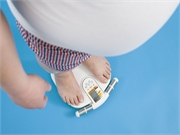- Could Your Grocery Store Meat Be Causing Recurring UTIs?
- Are You Making This Expensive Thermostat Error This Winter?
- Recognizing the Signs of Hypothyroidism
- 10 Strategies to Overcome Insomnia
- Could Artificial Sweeteners Be Aging the Brain Faster?
- Techniques for Soothing Your Nervous System
- Does the Water in Your House Smell Funny? Here’s Why
- Can a Daily Dose of Apple Cider Vinegar Actually Aid Weight Loss?
- 6 Health Beverages That Can Actually Spike Your Blood Sugar
- Treatment Options for Social Anxiety Disorder
Extra Pounds Could Bring More Painful Joints

Carrying excess pounds can be painful, literally. A new study finds that being overweight or obese ups the risk of pain in people with musculoskeletal disorders.
“Pain, osteoarthritis and weight share a complicated relationship,” said study author Dr. Diana Higgins. She’s a researcher with the VA Boston Healthcare System and Boston University School of Medicine.
“Overall, the more weight a patient with a musculoskeletal disorder carries, the more likely they are to report experiencing pain, which may affect functioning and quality of life,” Higgins said in a VA news release.
Researchers analyzed data on nearly 2 million U.S. veterans with musculoskeletal disorders, such as non-traumatic joint disorder; arthritis; low back, back or neck pain.
Overall, 58% said they had pain. Nearly eight in 10 patients were overweight or obese. The higher a patient’s body mass index (BMI), the more likely they were to report pain. BMI is an estimate of body fat based on weight and height.
Compared to those of normal weight, those with moderate obesity (BMI of 35 to 39) were 9% more likely to report pain. And those with severe obesity (BMI of 40 or higher) were 23% more likely.
The connection between excess weight and increased risk of pain was strongest in patients with arthritis, with 40% of overweight patients and 55% of severely obese patients reporting pain.
The association between weight and pain was less pronounced in patients with back or low back pain, according to the study. The results were published recently in the journal Pain Medicine.
While the study shows a link between weight and pain in arthritis patients, further research is needed to understand this relationship, the authors said.
Strain on the joints from excess weight could lead to arthritis pain, but that relationship might also go the other way, they suggested. Pain caused by arthritis could cause patients to avoid physical activity, which could result in a higher BMI.
More information
The U.S. National Institute on Aging has more about arthritis.
Source: HealthDay
Copyright © 2026 HealthDay. All rights reserved.










